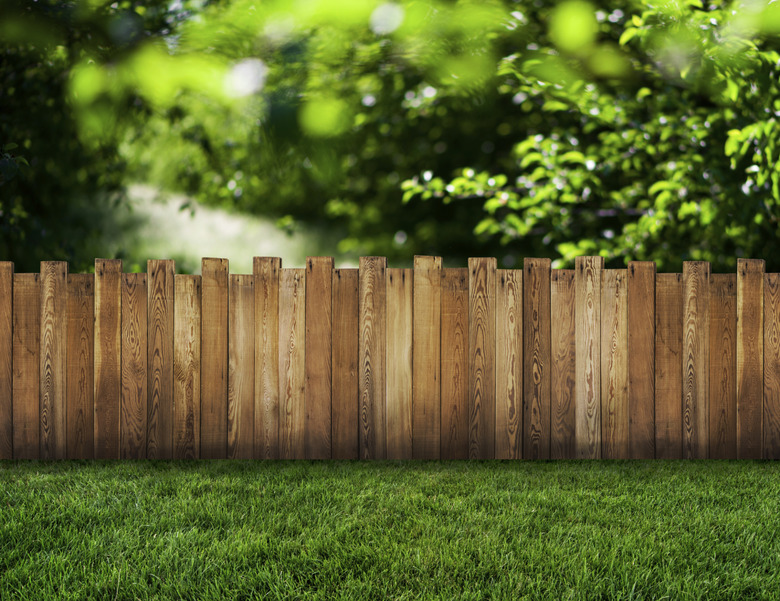What Does Ironite Do For Lawns?
Ironite is a line of products from Pennington Seed Incorporated that contain iron, which is essential for plant growth. If a lawn is deficient in iron, the grass can become yellowish or chlorotic. Applying Ironite to an iron-deficient lawn helps restore a deep green color. The Ironite line includes several products for your lawn.
Plant Nutrition
All plants need essential nutrients to grow. Some of these nutrients, called micronutrients, are needed in small amounts. Iron falls here, as do manganese, zinc, boron, copper, molybdenum and chlorine. All Ironite products contain iron, as the name suggests, but some contain additional nutrients. Plants need large quantities of macronutrients, including nitrogen, phosphorus, potassium, calcium, magnesium and sulfur. Most fertilizers contain nitrogen, phosphorus and potassium, which respectively have the chemical symbols N, P and K. N-P-K ratios for Ironite lawn products are 1-0-1 for Ironite Mineral Supplement, 12-10-10 for Ironite Plus Lawn & Plant Food and 6-2-1 for Ironite Plus Lawn & Garden Spray.
The Role of Iron
Plants use iron in making enzymes and for synthesizing proteins important in the manufacture of chlorophyll, the green compound in plants that is needed for photosynthesis. Iron-deficient grass can become a mottled yellow color and doesn't grow well. Although iron is present in most soils, it often occurs in a form that plants can't take up. Iron oxide or rust is an example. The pH of the soil also affects the ability of plants to take up iron. If soil pH is too high, plants can't readily absorb iron compounds. Ironite products supply iron in forms plants can use, and grass often shows a quick color improvement after Ironite application.
Iron Deficiency
Test your soil to determine if iron deficiency is the source of your lawn problems. If it is, Ironite can help green up your lawn, at least temporarily. Iron-deficient soil often needs long-term, ongoing work, such as reducing soil pH, for a permanent solution. People often believe grass that has poor growth and color lacks macronutrients, such as nitrogen, which doesn't help iron-deficient grass. Supplying iron greens the grass without adding unnecessary macronutrients. High levels of nitrogen increase mowing and watering needs and can promote development of fungal diseases in lawns.
Ironite Products for Lawns
Different Ironite formulations allow flexibility for iron applications in various gardening situations. Ironite Mineral Supplement is a granular product containing soluble iron. The main effect of this product is to regreen grass, because the fertilizer component is negligible. The manufacturer recommends using it four times a year along with your usual fertilizer program. Apply it to established lawns with a fertilizer spreader at the rate of 1 pound per 100 square feet and water the lawn deeply. Ironite Plus Lawn & Plant Food supplies 2 percent iron as well as sulfur in granules. Distribute 20 pounds evenly with a fertilizer spreader over 2,500 square feet of established lawn up to four times a year, watering after application. Ironite Plus Lawn & Garden Spray is a liquid hose-on product that contains 1 percent iron. Iron and nutrients can enter grass through the grass blades as well as the roots. Attach the bottle to the end of a garden hose and turn on the water to apply. Application should be to moist or recently watered soil at a rate of every two to four weeks, as needed. Always keep children and pets away when you're working with garden chemicals.
References
- Pennington: Products: Ironite
- Pennsylvania State University: Turfgrass Fertilization: A Basic Guide for Professional Turfgrass Managers
- University of California Integrated Pest Management: Lawn Diseases: Prevention and Management
- Pennington: Ironite Mineral Supplement
- Pennington: Ironite Plus Lawn & Plant Food
- Pennington: Ironite Plus Lawn & Garden Spray
